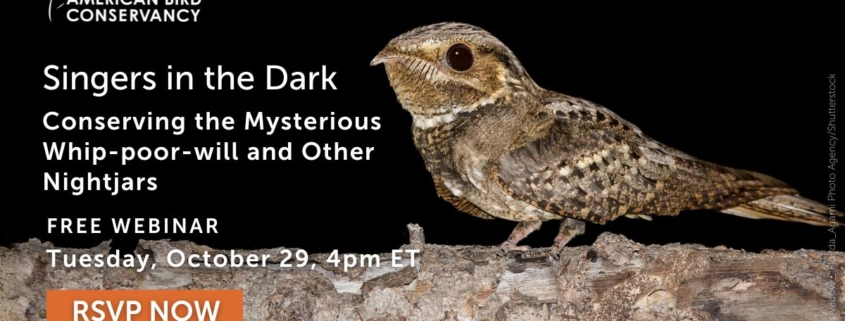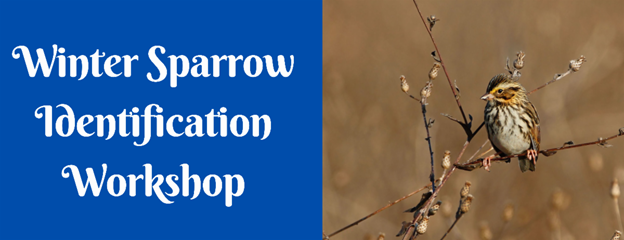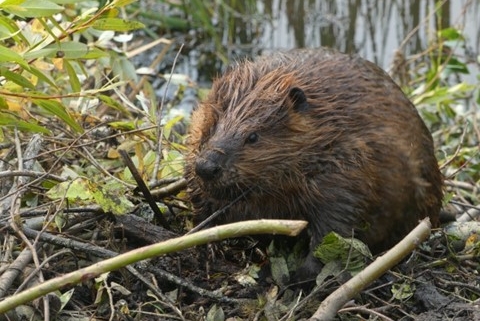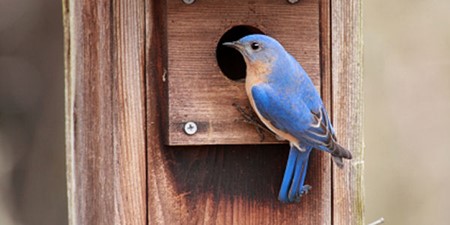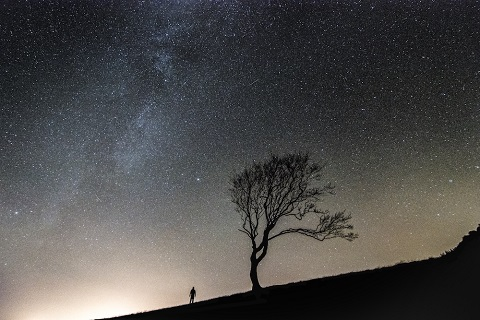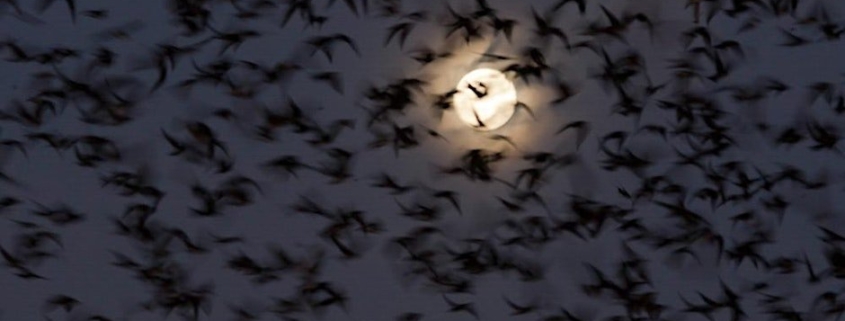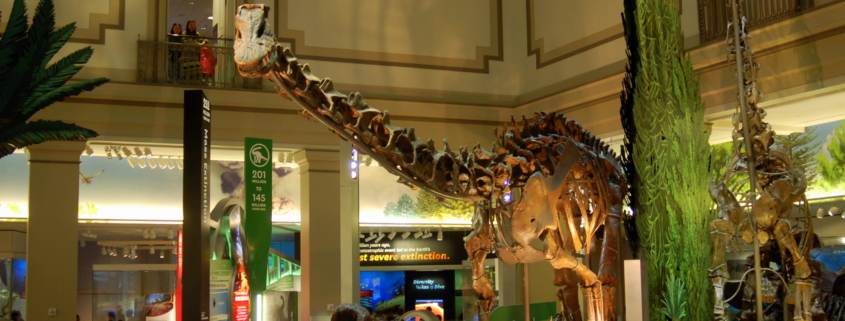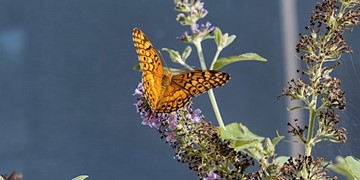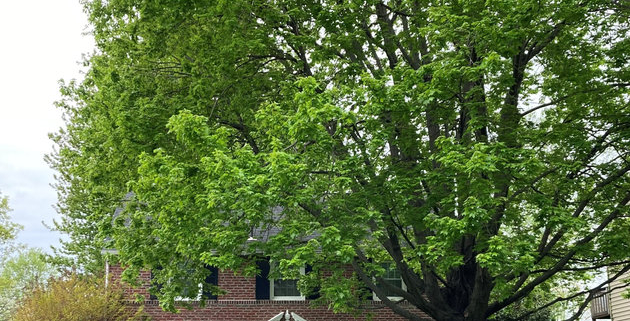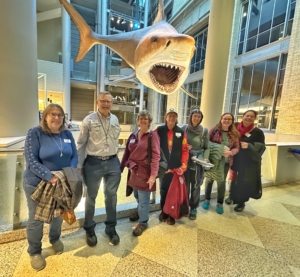
Smithsonian tour group – photo courtesy of FMN Ana Ka’ahanui
After a summer hiatus, the popular Smithsonian CE tour led by FMN John Kelmelis, returns in September. Speaking, of course, about the interpretive tour of the National Museum of Natural History for Virginia Master Naturalists. As a reminder, this tour is for FMN volunteers only and is limited by the Smithsonian to 6 people per tour. The tour begins at 3:00 p.m. so please plan to arrive by 2:45 for orientation. Details are described below and in the BI Calendar event description.
When: Thursday, September 26 2024 at 3:00pm
Where: Museum of Natural History, Washington, DC
Meet at the information desk inside the rotunda beside Henry, the big elephant.
How long: Approximately 2 hours.
Group limit: 6 individuals
To register:
1. Login to BI and click on your ‘Opportunities’ tab.
2. Select ‘Opportunity Calendar’ from the pull-down list.
3. Find event in the displayed calendar and click on it to display event details.
4. To sign up, Click on the ‘Sign Up’ box in the lower right. This automatically signs you up and puts the event on your calendar. Events disappear from calendar when full.
5. To claim 2 CE hours: use All Continuing Education -> FMN All other Chapter Training
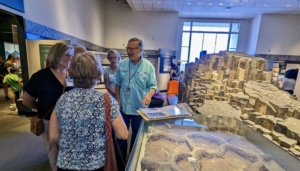
Geology section National Museum of Natural History with FMN Dr. John Kelmelis. Photo FMN Susan Martel
Bring paper and pencil or E-pad to take notes if you desire. No visual or audio recordings please (Smithsonian rule).
This tour will identify the relationship of some exhibits tailored to the natural environment of Virginia including the geologic history, mineralogy, entomology, osteology, evolution, mammalogy, and many other topics. Some take-aways include an introduction of how the display collection can be used to enrich the naturalist’s understanding of science and facts related to the natural condition and history of Virginia.
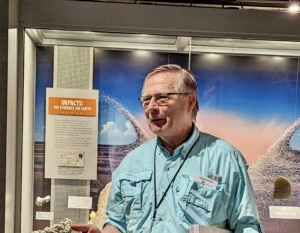
FMN Dr. John Kelmelis – photo FMN Susan Martel
Dr. Kelmelis is former Chief Scientist for Geography for the U.S. Geological Survey, former Senior Counselor for Earth Science at the U.S. Department of State, former Professor of Science, Technology and International Policy, and Founding Faculty of the School of International Affairs at Pennsylvania State University. He holds a BA in Earth Science; MS in Engineering; and Ph.D. in Geography. He is a fellow of the American Association for the Advancement of Science and has held positions in other national and international scientific organizations. He is a docent at the Smithsonian and a Virginia Master Naturalist in the Fairfax chapter.
Acknowledgments:
FMN Susan Martel – photos
FMN Ana Ka’hanaui – a photo from her camera
FMN Jerry Nissley – cover photo


